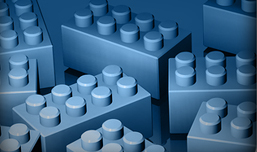What technological developments will 2014 bring?
We've looked at how the media landscape is likely to change 2014. Here we predict what new technological developments and products might be launched over the coming year and what legal issues could result.
With our Technology focus on the entire sector eco-system, from global Technology heavyweights, US businesses launching and expanding in Europe, through to SMEs based out of London's Tech City, Berlin or other Technology hubs, we have the luxury of a birds' eye view of the market. We see the strategic direction of the larger businesses, the technology coming out of the US and other exciting markets, the themes running through the disruptive models of early stage founders and serial entrepreneurs, through to what grabs the attention of the VCs and other investors. So, hopefully applying a little sprinkle of festive market insight to our Technology crystal ball, we'll be putting the following trends on our Christmas lists this year:
Less is more
Consumers continue to move away from ownership of media content to streaming models, new generations of consumers never experience the High Fidelity lure of media collection, never make tapes for their boyfriends (making playlists instead perhaps), and these continued trends will fuel the growth of subscription streaming models. As these models are becoming increasingly intertwined with social media, and people share their preferences and discoveries, and respond to those of others, the value of user data to advertisers will continue to rise, and data protection will, as ever, become increasingly important. Whilst more traditional digital streaming models such as iTunes continue to be consumed en masse it will be interesting to see whether the market evolves when it comes to the rights of users to transfer libraries, at the very least on death, as people build up ever more valuable virtual collections.  Recent stories of Bruce Willis being ready to challenge Apple over the ability to pass on his iTunes collection may have turned out to be fabricated, however as collections grow and the community of users matures, this is perhaps an issue for businesses employing this model to address.
Recent stories of Bruce Willis being ready to challenge Apple over the ability to pass on his iTunes collection may have turned out to be fabricated, however as collections grow and the community of users matures, this is perhaps an issue for businesses employing this model to address.
It's advertising, but not as we know it
We don't like adverts. Some make us laugh, some are very artistic, but we do our best to avoid them. So, for years advertising agencies and brand owners have tried to come with clever ways to reach us without us feeling like we're being reached. Social media is changing this – we are becoming increasingly influenced by those we follow on social media, and advertisers are realising this. Businesses that can harness big data technology to identify the key influencers in relation to specific sectors or brands (think golf, wine, Justin Timberlake or Chelsea FC), and enable brands to engage with them to drive their influence on others, have a bright future. These models will raise issues around advertising rules, IP (not least in databases) and data privacy which will need to be tackled by those businesses in order to maximise their return. Mark Owen explores advertising for 2014.
Edtech
Technology is bringing education to new students, in new markets, and in new ways. This is being driven by mobile – allowing remote communities in developing markets to be reached via tablets, and by data – allowing platforms to deliver truly adaptive learning techniques that are personalised to each student. Content is separated from platform, allowing technology providers to excel at delivery while publishers excel at content. Gaming concepts are being brought to bear to develop educational techniques. Accessibility issues are being addressed like never before, not least with devices being developed to allow sensory education through sound and touch. Cloud models are bringing down costs for schools and authorities. Resources are becoming much richer, with video and interactive tools increasingly being used. Classrooms are smart, equipped with multimedia components designed to enrich the teaching and learning process. Teachers and students are becoming connected via education-focused social media platforms such as Edmodo.

What legal issues does this raise? As technological innovation becomes increasingly core to businesses' ability to differentiate, patents will grow in importance, with businesses needing to develop filing strategies to both protect their products but also for defensive purposes given pressure from competitors and businesses in adjacent fields. Copyright law is changing to reflect the increased interactive technology based methods of learning. Read more about this here. Also, the ability to collect and process data about students and their progress, and to use this to enhance learning and products will be key to growth and survival, and as such data protection will be a key legal issue for most businesses in this market.
Virtual reality becoming real
There has never been a better example of a great idea at the wrong time than Virtual Reality (except perhaps for WAP, around the year 2000), but it seems the technology is finally delivering on the promises of 10 or even 20 years ago. The indignity of wearing a headset out of Doctor Who may finally be worth the experience it delivers. Products such as Oculus Rift are pushing the boundaries, creating real immersive experiences, but R&D is pushing this further with new screen-less models projecting images directly onto the users' retinas. With related development of motion-control technologies based on sensory impulse such as the Myo from Canada's Thalmic Labs, the escape of true virtual reality products is closer than ever before. With the volume of innovation coming from many different markets, IP protection will be a key issue for stakeholders. We have all witnessed the patent wars in the mobile telephony market, and many think that the games sector is likely to experience something similar in the future.
Healthtech
At the leading Tech industry event TechCrunch Disrupt, SUN Microsystems' co-founder, Vinod Khosla stated: "in the next 10 years, data science and software will do more for medicine than all of the biological sciences together". This sentiment is echoed by a number of other experts and investors are now excited about backing healthtech businesses. These businesses are not using pharmaceutical skills, they are using good old software and data (particularly the latter) to deliver both devices and insight into treatment.  They are also pivotal to governments' holy grail search for ways of reducing hospital admissions, and are thus to a degree the darlings of the state. Such medical devices are subject to a varying degree of regulation but the general positions is that they are not regulated like drugs, and the path to market is generally relatively quick (it needs to be to promote innovation in a market where the barriers to entry are relatively low unlike Pharma where R&D budgets remain colossal). It is also very early days in this market, and the market for bodies to validate devices, and to take scientists' ideas and commercialise them using technology, will mature quickly over the coming months and years. As for the legal issues, manufacturers of devices need to think very carefully about how they position their devices, in terms of liability – a device may not need prior authorization from an MHRA type body, but in the wrong hands, or with the wrong results, or marketed in the wrong way, implications could be disastrous. It is not lawful (at least in the UK) to limit liability for death or personal injury caused by negligence, and so careful messaging as to product capabilities, and insurance, will play a key part. As ever, so will data, and permissions to use personal data (which if related to health is classed as "sensitive personal data" in the UK), and with forthcoming data fines increasing to up to 2% of global turnover, getting compliance right will be essential to the health of the businesses themselves.
They are also pivotal to governments' holy grail search for ways of reducing hospital admissions, and are thus to a degree the darlings of the state. Such medical devices are subject to a varying degree of regulation but the general positions is that they are not regulated like drugs, and the path to market is generally relatively quick (it needs to be to promote innovation in a market where the barriers to entry are relatively low unlike Pharma where R&D budgets remain colossal). It is also very early days in this market, and the market for bodies to validate devices, and to take scientists' ideas and commercialise them using technology, will mature quickly over the coming months and years. As for the legal issues, manufacturers of devices need to think very carefully about how they position their devices, in terms of liability – a device may not need prior authorization from an MHRA type body, but in the wrong hands, or with the wrong results, or marketed in the wrong way, implications could be disastrous. It is not lawful (at least in the UK) to limit liability for death or personal injury caused by negligence, and so careful messaging as to product capabilities, and insurance, will play a key part. As ever, so will data, and permissions to use personal data (which if related to health is classed as "sensitive personal data" in the UK), and with forthcoming data fines increasing to up to 2% of global turnover, getting compliance right will be essential to the health of the businesses themselves.
The console is dead, long live the console
Microsoft sold more than one million Xbox One consoles in less than 24 hours, despite some users saying they have been plagued by technical problems. However will 2013 be the last year in which we see the release of a major console? Games are moving increasingly into connected cloud based environments and bandwidth availability is allowing consumers to harness high definition graphics on such platforms. Open platforms like Valve's Steam are allowing gamers more choice, and tapping into publishers' resistance to being tied into exclusive deals with hardware platforms. Previous claims that consoles would be the disruptive devices through which we consume media generally including TV and film now seem somewhat out of date. TVs are becoming smarter, connected devices in their own right. Consoles inherently – at least traditionally - rely on boxed games retailing at say £50, yet 500 million people have played Angry Birds compared to 25 million players of Call of Duty, and the quality gap between free or cheap games and premium boxed games is narrowing, and big title development is becoming more expensive. The reasons go on, however some commentators think consoles still have a role to play, and point to the fact that the latest generation of consoles has far surpassed anything that ever went before, the popularity of games like Grand Theft Auto, grossing $800m in one day, and the bare fact that consoles are designed to play games, and are easy to use. Contrast the one platform route with the challenges a game developer faces when developing for a multi-device market such as Android, or PCs, where they may need to either develop a number of different versions of the game or choose to cater for the lowest common denominator in terms of power and functionality.
 The jury is out on the future of the console but what is clear is that console businesses are having to adapt rapidly to cloud based models, where users are connected in real time, in a social environment. Data laws are thus going to play a key part in the development of these connected models. This is particularly so given that, even though claims of typical gamers being women in their 50s, a large percentage of the games demographic will always remain as teenagers blasting baddies throughout the streets of LA in their bedrooms.
The jury is out on the future of the console but what is clear is that console businesses are having to adapt rapidly to cloud based models, where users are connected in real time, in a social environment. Data laws are thus going to play a key part in the development of these connected models. This is particularly so given that, even though claims of typical gamers being women in their 50s, a large percentage of the games demographic will always remain as teenagers blasting baddies throughout the streets of LA in their bedrooms.
Wearable Technology
As noted by Louise Taylor in wearable technology enters business mainstream, new wearable technology products following Google Glass and Samsung's smartwatch are going to become increasingly common, with manufacturers as well as users needing to balance the exciting new freedoms these products bring against the privacy concerns they raise. With Google Glass set to retail initially at $1500, and some analysts predicting an annual market of more than $10 billion, wearable technology is likely to be far from the Emperor's new clothes.
Pa$$word
Apple's introduction of fingerprint technology was perhaps the first mainstream consumer device to offer a biometric-type access, a trend reflecting the inherent weakness of passwords. Taking aside the reliability and security issues Apple's introductory technology suffered, new forms of authentication are massively on the rise. With multiple different password formats required across the web (requirements for upper case, numbers, different password lengths) convenience is as low as security, and single sign-on mechanisms such as those used by the numerous sites that require Facebook sign-on add to the security risks of password secrecy. Recent innovation has gone well beyond fingerprint authentication, using mobile device location data (e.g. as used for fraud detection for retail purchases), recognition of the (unique) human heartbeat through to iris recognition. The move from users verifying their identity with something they know, to something they are, is gathering pace and must surely be set to play an increasingly common role in future authentication methods. There will be cries of big brother, and privacy concerns are very real (not least given recent international developments on the world stage as well as incidents of security breaches in large organisations), but in our view 2014 will see a step-change in mainstream use of such methods. Data security will be key to consumer confidence and the level of fines that will be able to be issued for data losses will be another factor that elevates authentication well beyond the preserve of IT departments and into the boardroom.
3D printing for all
It has been claimed that 3D printing is the second industrial revolution. Previously seen as the preserve of business, with printers retailing at significant sums, this may be changing.  Kickstarter fuelled Peachy Printer claim to have developed the world's cheapest 3D printer, at $100. Consumer 3D printing is being showcased ahead of 2014's Consumer Electronics Show (CES), where 3D will have its own exhibit area, with some commentators predicting it will dominate the show. Also, Asda is trialling a new service whereby customers can create a detailed 3D printed miniature version of themselves.
Kickstarter fuelled Peachy Printer claim to have developed the world's cheapest 3D printer, at $100. Consumer 3D printing is being showcased ahead of 2014's Consumer Electronics Show (CES), where 3D will have its own exhibit area, with some commentators predicting it will dominate the show. Also, Asda is trialling a new service whereby customers can create a detailed 3D printed miniature version of themselves.
So, will 3D printers be filling our stockings this Christmas and will we all be printing our iphone covers, replacement washing machine parts, and little "mini-me"s at home in 2014? Perhaps not just yet, but we think it's getting closer.
The new technology will have a significant impact on IP law, and vice versa. The key IP laws that will need to be developed in order to support an open market, and also other drivers for the growth of the technology, are tackled in our series of articles here.
Catch me if you can
Will 2014 finally see the law catch up with technological innovation and what's available on the high street and internet? We don't think so but there will be some fundamental changes. As will be clear from the observations above, the key areas of law that will need to track innovation will be data protection (particular the rules around use of data generated by individuals as part of "big data" analysis) and Intellectual Property. Read more on the changes in data law see, and for a discussion on the changes in Intellectual Property laws read our article on changes to the media landscape. Watch this space for further thoughts on how this might all play out.
If you have any questions on this article please contact us.


Graham Hann
A quick look into the Technology crystal ball reveals some interesting trends for our Christmas list this year.
"Will 2014 finally see the law catch up with technological innovation and what's available on the high street and Internet?"
"We don't like adverts. Some make us laugh, some are very artistic, but we do our best to avoid them."
"So, will 3D printers be filling our stockings this Christmas and will we all be printing our iphone covers, replacement washing machine parts, and little "mini-me"s at home in 2014?"

